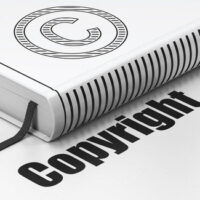Fair Use: When Infringement Isn’t Infringement

Copyright infringement can get you in trouble. If you own a copyright that’s being infringed upon, copyright infringement can cost you a lot of money, as your intellectual property is being used, sold, distributed or promoted, without your consent. Either way, respecting copyrights is vital.
However, there are certain times when a copyright can be used without permission. This is called the Fair Use doctrine, which spells out certain times when it is OK to use—with some limitations—someone else’s copyrighted material.
What is Fair Use?
Federal copyright law allows you to use someone else’s copyright for criticism, comment, news reporting, teaching or research. Some common examples of fair use may be:
-A news station, reporting on an actor’s death, showing small clips of movies the actor was in
-A school teacher handing out a history assignment which references lines in books or movies
-A professor, commenting on violence in the media, showing clips of TV shows in class to demonstrate his point
-A singer altering lyrics or the harmony on a copyrighted sing, for the purpose of parody
We see examples of fair use all around us. The famous 80s singer “Weird” Al Yankovic used to copy famous songs, and attach his comedic lyrics to them. The TV show Saturday Night Live parodies just about everything in media and culture. Journalists quote from political speeches all the time. Art historians use pictures of art to demonstrate their point.
Questions Judges Ask in Determining Fair Use
The question of financial gain is a central one in fair use law. Generally, the more heavily that the use of copyrighted material is used for profit, the less likely it will be considered fair use (although the examples above, such as Yankovic’s music and Saturday Night Live, clearly are for profit).
To use an example, if I used a picture of Star Wars’ Darth Vader to illustrate my essay on evil in the world, that would probably be OK. But if my essay were published in a book and sold worldwide for millions of dollars, that probably would not be fair use.
Courts will also ask if you are creating something new out of the copyrighted material. If so, it’s fair use.
For example, if I copied a magazine article that reviewed sports cars, that would likely not be fair use. But if I was creating my own work, an article about how sports cars have changed through the years, and in it I had quotes from the magazine article, I am creating a new work, and just using a piece of the copyrighted material to create my new work. That would probably be acceptable fair use.
It will also lean towards fair use if I am not competing with the source that I borrowed the material from, or that I don’t intend to compete.
Call the West Palm Beach copyright litigation lawyers at Pike & Lustig to help you with your intellectual property questions.
Resource:
copyright.columbia.edu/basics/fair-use.html



